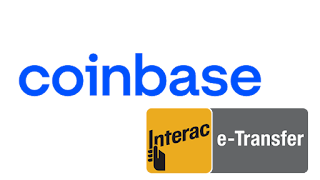A Tax-Free Savings Account (TFSA) can hold a variety of investments, including cash, GICs, bonds, stocks, ETFs, and mutual funds. To buy stocks, you may need to open an investment account, either with a full-service investment firm or on your own.
A Tax-Free Savings Account (TFSA) allows your savings to grow tax-free, and you can withdraw funds at any time without paying tax on any capital gains from selling stocks. Withdrawals can be re-contributed in the same year if you haven't contributed more than the current maximum of $5,500 per year, or in the following year if you haven't contributed more than the current maximum of $5,500 per year. Your TFSA contribution room will not be affected by investment income or changes in the value of your TFSA investments in current or future years.
Trades within your TFSA can be made as frequently as you like without incurring capital gains tax. It should be noted, however, that you cannot use capital losses on TFSA investments to offset gains. The Canada Revenue Agency (CRA) may audit a TFSA if investors use their TFSAs to operate a business of trading securities, such as if trades are too frequent and you earn large gains. What happens if you trade in a TFSA on a daily basis? The CRA does not permit investors to buy and sell securities in their TFSA on a regular basis. Any income generated by day trading within your TFSA is considered business income and is taxed accordingly.
Another advantage of the TFSA is the ease with which you can withdraw funds from your account. Unlike your RRSP, where you have to deal with withholding taxes, purchasing annuities, and opening RRIFs, it's all a bit much. But not with a TFSA withdrawal; the procedure is so simple it's ridiculous! It may take a few days to sell some of your investments and convert them to cash, but this is true of any type of security sale.
Your contribution room never expires, so don't worry if you don't use all of your TFSA contribution room; whatever amount you have leftover will simply carry over to the following year. If you have the financial means to invest in your TFSA, the sooner you begin, the better. But don't worry if you're in a situation where you can't begin contributing to this account right away; your TFSA will be waiting for you, along with all of the contribution room you're entitled to.
Withdrawals from a TFSA will not affect your government benefits. One of the biggest advantages of investing and earning money through a TFSA is that your withdrawals, and any income generated from them, will not affect any of your government benefits. So, regardless of how much you earn in your TFSA, this investment income will not be included on your Income Tax and Benefit Form and will have no effect on your government benefits.
Another thing to keep in mind if you're thinking about investing in cryptocurrencies is that, while you can keep crypto-backed ETFs in your tax-free savings account (TFSA) and registered retirement savings plan (RRSP), you cannot keep crypto-assets themselves in a tax-advantaged account.
Finally, unlike withdrawing money from an RRSP, if you withdraw money from your TFSA, you will be able to re-contribute that amount the following year. In other words, you'll never run out of contribution space. Assume that my contribution room for 2020 is $12,000 and that my total actual contributions for the year are $10,000. If I decide to withdraw $5,000 of that $10,000 before the end of 2020, that $5,000 will be added back to my contribution room for 2021.









